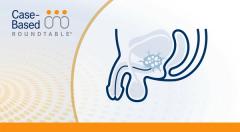
Impact of Newer ARPIs Is Significant in Patients With mHSPC
Pedro C. Barata, MD, MSc, discusses options for metastatic hormone-sensitive prostate cancer in the community setting.
Episodes in this series

Pedro C. Barata, MD, MSc, associate professor of medicine at Case Western University and director of the Clinical Genitourinary Medical Oncology Research Program at University Hospitals Seidman Cancer Center in Cleveland, Ohio, discusses options for metastatic hormone-sensitive prostate cancer (mHSPC) in the community setting.
mHSPC treatment has gone through evolution where androgen deprivation therapy (ADT)/docetaxel is no longer the standard of care due to the emergence of triplet therapies and androgen receptor pathway inhibitors (ARPIs). The decision now centers on which ARPI to use with or without docetaxel. Barata says abiraterone (Zytiga) is not suitable for many patients seen in community practices, such as those with diabetes or those over 75 years of age.
As opposed to abiraterone, darolutamide (Nubeqa) can be taken with or without food, does not require steroids, and has fewer drug-drug interactions (DDIs) and less impact on the central nervous system (CNS), Barata says. Darolutamide has shown a favorable safety profile in nonmetastatic and mHSPC disease trials.
TRANSCRIPTION
0:10 | ADT/docetaxel, which has been or was the standard of care prior to [when] the triplet therapy was around—we were debating whether or not to [give] a patient docetaxel with ADT or ARPI/ADT. Since the data from PEACE-1 [NCT01957436] and now ARASENS [NCT02799602], it's clear to us that, in my clinics, no longer is a patient being offered ADT/docetaxel alone. The question is the ARPI with or without docetaxel. So it's really changed in our thought process.
0:42 | I think in the community, there are many patients who will be not good candidates for abiraterone. If you think of triplet therapy per se, where steroids are a problem, you have do that chronically, even though it's a low dose of prednisone or controlling things like metabolic changes like the apoptosemia or liver alterations like [liver function test] elevations can be a potential problem. They are not really ideal candidates for abiraterone. [Patients] with poorly controlled diabetes or even older patients based on data from different data sets, meta-analysis, STOPCAP trial data, etc, suggested older patients over 75 years old don't seem to benefit from the addition of abiraterone.
1:31 | So I think it's putting some additional pressure on abiraterone, compared to darolutamide, which can be done with and without food, no steroids required, minimal DDIs, and actually not a significant impact on CNS or mental fogginess with fatigue, at least compared in my real-world experience. I think we see that in the data for nonmetastatic disease, as well when you compare the different antiandrogens across placebo. So [comparing] not among them but [vs] placebo, I do see the very favorable safety profile for darolutamide. So I think the impact in the community is actually important, significant, and positive.
























